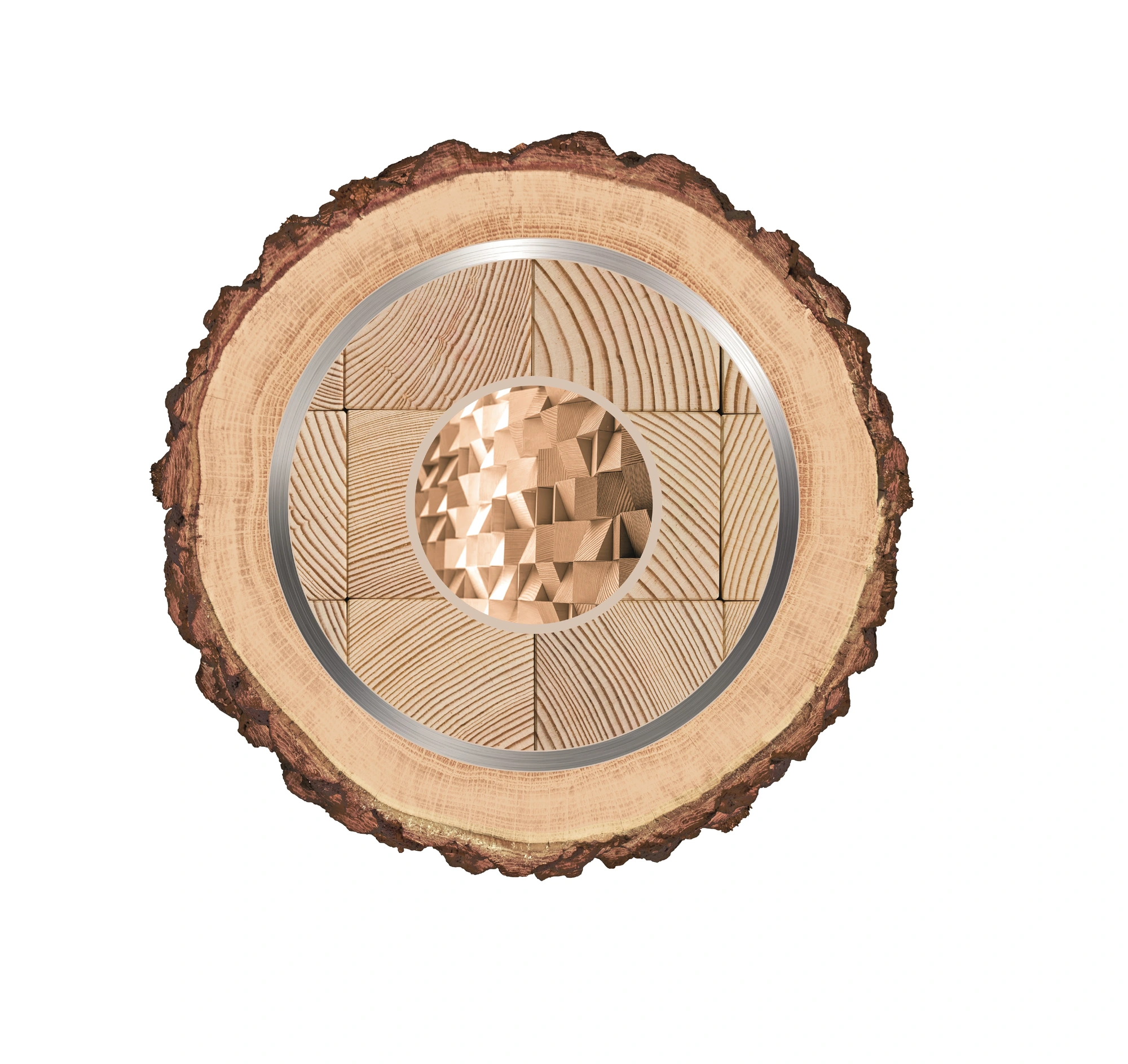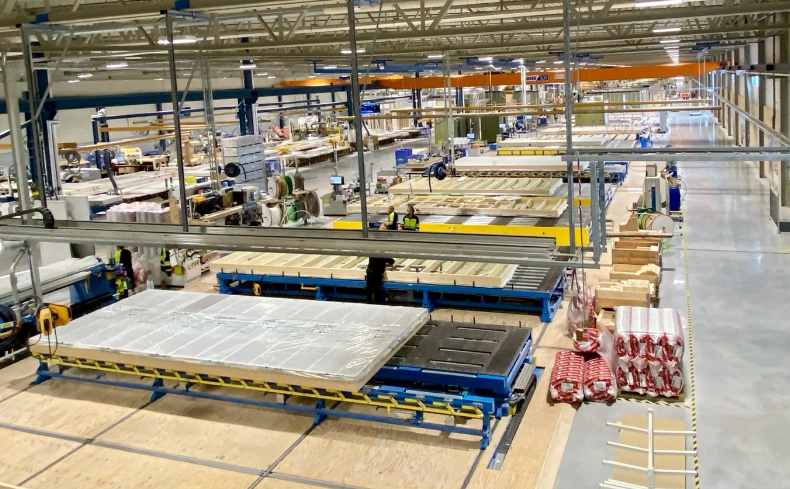The rise of timber in construction could revolutionise the property market

According to Pascal Chazal, director of the Hors Site group and Zen Modular, industrialisation, standardisation and collaboration are the key levers for revitalising construction. In the context of the current profound transformation of construction processes, timber and its production methods bring both strengths and challenges. Interview.
Is France's RE2020 environmental regulation, with its targets for reductions in CO2 emissions, the main reason why the construction sector needs to rethink its working methods?
It's a fact that integrating bio-based materials into construction, a practice that will increase with the gradual application of RE2020, will revolutionise site management, with more and more modules manufactured off-site. But more globally, construction has reached the end of its development model, with high CO2 emissions, low profitability, declining quality and products that are less and less accessible, particularly in terms of housing. Not to mention the increasing difficulty of finding labour. Did you know that a worker on a building site produces added value only 25% of the time, compared with 85% in industry, or that the costs of quality failures are estimated at 30% in property, while they represent less than 1% in the automotive industry? Every building is custom-built, with the organisation focused on the construction site. This model cannot continue – the construction sector has to fundamentally rethink its working methods, stop reinventing the wheel for each new project, and work closely with industrial construction companies. The off-site production of industrialised building components has many virtues, including much quicker construction, significant productivity gains, reduced CO2 emissions, improved working conditions for builders and increased reuse of materials. This is a cultural and organisational change, in which everyone involved – project client, architect, engineer, manufacturer – must work hand in hand and trust each other to create the best product for the client, with the best environmental performance and optimum financial conditions.

Pascal Chazal, director of the Hors Site group and Zen Modular
How can timber construction take advantage of these changes and be ready to scale up?
Industrial timber construction companies are already doing off-site construction without knowing it! This means they are in a good position, especially as they tend to keep modernising their production facilities. But there are still conditions. Until project clients take the requirements of these companies into account, their risk remains high. A simple example: if a carpentry firm produces a timber frame and has to fit the cladding in the factory, they need to know the colour of the cladding when the order is placed, but often this has not yet been chosen by the architect or the client. As a result, they have to chase the information, wasting time, and keep their production in storage, reducing profitability. The industry cannot deal with this lack of forward planning. To optimise factory production processes, project clients, architects and companies have to work together from the beginning of the construction project. Public procurement in France is made more complicated by the MOP public-sector construction procurement law, which prohibits early-stage collaboration and encourages a top-down operation that is neither collaborative nor interdisciplinary. But things are changing, as shown by Parisian development stakeholders recently signing a charter to develop off-site construction. By 2030, they predict that 50% of projects will be produced off-site. In this context, an association has been set up to bring together public and para-public clients, developers, manufacturers and contractors with the aim of developing and structuring the off-site construction sector. This is very encouraging, particularly for timber construction, a sector that is likely to grow significantly due to the material's natural advantages.
The former leader of OSSABOIS, and a passionate advocate for off-site construction, with the magazine and the training campus you have developed, you recently founded Zen Modular. What does this company offer?
Zen Modular is a digital platform that aims to provide construction companies with modular components they can incorporate into their projects. We have chosen to work on a single element: the bedroom. Whether the goal is to build a students' hall of residence, a hotel, a nursing home or accommodation for Olympic athletes, the bedroom is a repeating “object”, and producing it in a modular way brings many benefits.
This is what is known as 3D modular or object-oriented design. The bedrooms are factory-built in parallel with the other works carried out on-site. The accommodation is energy-efficient and includes plumbing, decoration, bathroom fittings and potentially smart equipment. The modules are delivered to the site and assembled in record time.
Our ambition with Zen Modular is to offer eco-designed modules, produce a list of approved manufacturers able to produce them and facilitate relations between clients and producers. Thanks to a recent fund-raising campaign, we aim to deploy 10,000 modules a year by 2026 and to become a business creator for French manufacturers.
Find out more: zen-modular.com
Sweden: a successful example of reinvestment in timber construction
Though provided with rich forest resources, post-war Sweden neglected timber construction in favour of concrete, except for private houses. In the 2000s, timber construction players set out to reconquer the public housing market. In 20 years, the market share of timber in building construction – tertiary and housing – grew to more than 25%.
Several very successful companies developed, including BoKlok, which emerged from an encounter between the founder of Ikea and the CEO of Skanska. Targeting the affordable housing market, their promise was to “cut production costs by 25% so that normal people on normal incomes can buy a house”. Twenty years later, they have delivered over 14,000 homes.
BoKlok has two factories, produces modular timber homes and delivers 1,500 homes a year. This year they received the award for best builder in Sweden for the fourth time. “It's particularly striking to note that we come out on top for two criteria, housing quality and the financial accessibility of our homes. This proves it is possible to combine the two parameters, which are often seen as mutually exclusive,” emphasises Emilie Ekelund, BoKlok's sales manager.

The Lindbäcks factory in Piteå, Sweden, produces one wooden module every 30 minutes, and the workforce has an equal gender balance

The Sara Kulturhus cultural centre in Skellefteå, Sweden
Architects: White Arkitekter, Derome




